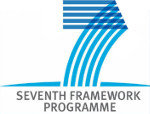Acknowledging the role of patient heterogeneity in hospital outcome reporting: Mortality after acute myocardial infarction in five European countries
Comendeiro-Maaløe, M. ; Estupiñán-Romero, F. ; Thygesen, L. C. ; Mateus, C. ; Merlo, J. ; Bernal-Delgado, E. ; behalf of the, ECHO consortium
Resumen: Background
Hospital performance, presented as the comparison of average measurements, dismisses that hospital outcomes may vary across types of patients. We aim at drawing out the relevance of accounting for patient heterogeneity when reporting on hospital performance.
Methods
An observational study on administrative data from virtually all 2009 hospital admissions for Acute Myocardial Infarction (AMI) discharged in Denmark, Portugal, Slovenia, Spain, and Sweden. Hospital performance was proxied using in-hospital risk-adjusted mortality. Multilevel Regression Modelling (MLRM) was used to assess differences in hospital performance, comparing the estimates of random intercept modelling (capturing hospital general contextual effects (GCE)), and random slope modelling (capturing hospital contextual effects for patients with and without congestive heart failure -CHF). The weighted Kappa Index (KI) was used to assess the agreement between performance estimates.
Results
We analysed 46,875 admissions of AMI, 6,314 with coexistent CHF, discharged from 107 hospitals. The overall in-hospital mortality rate was 5.2%, ranging from 4% in Sweden to 6.9% in Portugal. The MLRM with random slope outperformed the model with only random intercept, highlighting a much higher GCE in CHF patients [VPC = 8.34 (CI95% 4.94 to 13.03) and MOR = 1.69 (CI95% 1.62 to 2.21) vs. VPC = 3.9 (CI95% 2.4 to 5.9), MOR of 1.42 (CI95% 1.31 to 1.54) without CHF]. No agreement was observed between estimates [KI = -0,02 (CI95% -0,08 to 0.04].
Conclusions
The different GCE in AMI patients with and without CHF, along with the lack of agreement in estimates, suggests that accounting for patient heterogeneity is required to adequately characterize and report on hospital performance.
Idioma: Inglés
DOI: 10.1371/journal.pone.0228425
Año: 2020
Publicado en: PloS one 15, 2 (2020), e0228425 [14 pp]
ISSN: 1932-6203
Factor impacto JCR: 3.24 (2020)
Categ. JCR: MULTIDISCIPLINARY SCIENCES rank: 26 / 73 = 0.356 (2020) - Q2 - T2
Factor impacto SCIMAGO: 0.99 - Multidisciplinary (Q1)
Financiación: info:eu-repo/grantAgreement/EUR/ERDF-ESF/Investing in your future
Financiación: info:eu-repo/grantAgreement/EC/FP7/242189/EU/Improving access to health care data/ECHO
Financiación: info:eu-repo/grantAgreement/EC/H2020/664691/EU/BRidging Information and Data Generation for Evidence-based Health policy and research/BRIDGEHealth
Financiación: info:eu-repo/grantAgreement/ES/ISCIII-REDISSEC/RD16-0001-0007
Tipo y forma: Artículo (Versión definitiva)
 Debe reconocer adecuadamente la autoría, proporcionar un enlace a la licencia e indicar si se han realizado cambios. Puede hacerlo de cualquier manera razonable, pero no de una manera que sugiera que tiene el apoyo del licenciador o lo recibe por el uso que hace.
Debe reconocer adecuadamente la autoría, proporcionar un enlace a la licencia e indicar si se han realizado cambios. Puede hacerlo de cualquier manera razonable, pero no de una manera que sugiera que tiene el apoyo del licenciador o lo recibe por el uso que hace.
Exportado de SIDERAL (2021-09-02-09:22:02)
Visitas y descargas
Hospital performance, presented as the comparison of average measurements, dismisses that hospital outcomes may vary across types of patients. We aim at drawing out the relevance of accounting for patient heterogeneity when reporting on hospital performance.
Methods
An observational study on administrative data from virtually all 2009 hospital admissions for Acute Myocardial Infarction (AMI) discharged in Denmark, Portugal, Slovenia, Spain, and Sweden. Hospital performance was proxied using in-hospital risk-adjusted mortality. Multilevel Regression Modelling (MLRM) was used to assess differences in hospital performance, comparing the estimates of random intercept modelling (capturing hospital general contextual effects (GCE)), and random slope modelling (capturing hospital contextual effects for patients with and without congestive heart failure -CHF). The weighted Kappa Index (KI) was used to assess the agreement between performance estimates.
Results
We analysed 46,875 admissions of AMI, 6,314 with coexistent CHF, discharged from 107 hospitals. The overall in-hospital mortality rate was 5.2%, ranging from 4% in Sweden to 6.9% in Portugal. The MLRM with random slope outperformed the model with only random intercept, highlighting a much higher GCE in CHF patients [VPC = 8.34 (CI95% 4.94 to 13.03) and MOR = 1.69 (CI95% 1.62 to 2.21) vs. VPC = 3.9 (CI95% 2.4 to 5.9), MOR of 1.42 (CI95% 1.31 to 1.54) without CHF]. No agreement was observed between estimates [KI = -0,02 (CI95% -0,08 to 0.04].
Conclusions
The different GCE in AMI patients with and without CHF, along with the lack of agreement in estimates, suggests that accounting for patient heterogeneity is required to adequately characterize and report on hospital performance.
Idioma: Inglés
DOI: 10.1371/journal.pone.0228425
Año: 2020
Publicado en: PloS one 15, 2 (2020), e0228425 [14 pp]
ISSN: 1932-6203
Factor impacto JCR: 3.24 (2020)
Categ. JCR: MULTIDISCIPLINARY SCIENCES rank: 26 / 73 = 0.356 (2020) - Q2 - T2
Factor impacto SCIMAGO: 0.99 - Multidisciplinary (Q1)
Financiación: info:eu-repo/grantAgreement/EUR/ERDF-ESF/Investing in your future
Financiación: info:eu-repo/grantAgreement/EC/FP7/242189/EU/Improving access to health care data/ECHO
Financiación: info:eu-repo/grantAgreement/EC/H2020/664691/EU/BRidging Information and Data Generation for Evidence-based Health policy and research/BRIDGEHealth
Financiación: info:eu-repo/grantAgreement/ES/ISCIII-REDISSEC/RD16-0001-0007
Tipo y forma: Artículo (Versión definitiva)
Exportado de SIDERAL (2021-09-02-09:22:02)
Enlace permanente:
Visitas y descargas
Este artículo se encuentra en las siguientes colecciones:
Artículos
Registro creado el 2020-10-22, última modificación el 2021-09-02

